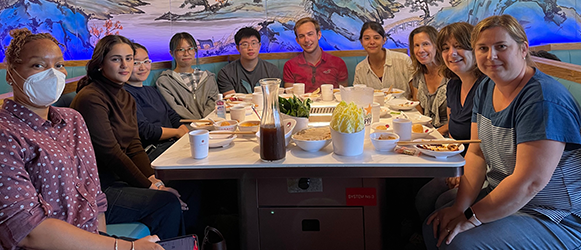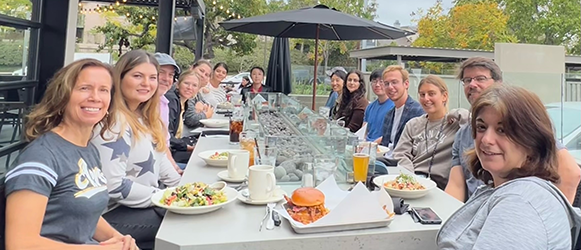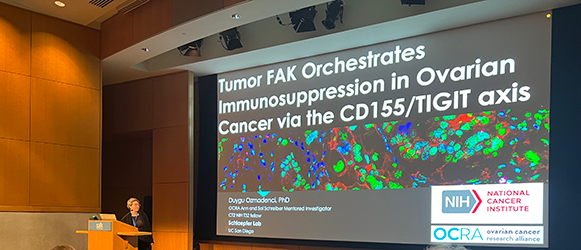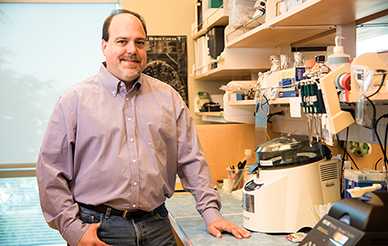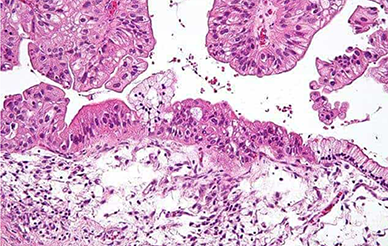Dr. David Schlaepfer
David Schlaepfer, PhD, is a Professor in the Department of OBGYN & Reproductive Sciences at the UCSD Moores Cancer Center. Over the last 20+ years, David has trained graduate students, postdoctoral, and MD fellows. He is motivated by basic research questions that have strong translational potential. FAK is an exciting target because inhibitors to FAK are being tested in clinical trials, one is ROCKIF (Resensitization of platinum-resistant ovarian cancer by kinase inhibition of FAK) trial at the Moores Cancer Center. David’s lab provides a supportive training environment that is interactive, focuses on enhancing communication skills, data analysis, and critical review. Visit schlaepferlab.org to learn more.

ABOUT THE LAB
Our focus is on understanding the molecular changes driving ovarian cancer anchorage-independent cell survival and treatment resistance. We are developing new mouse tumor models to study ovarian cancer and we incorporate new technologies such as CRISPR knockouts, multiplex immunohistochemistry, RNA sequencing, flow cytometry, mass spectrometry, and bioinformatics in our research.
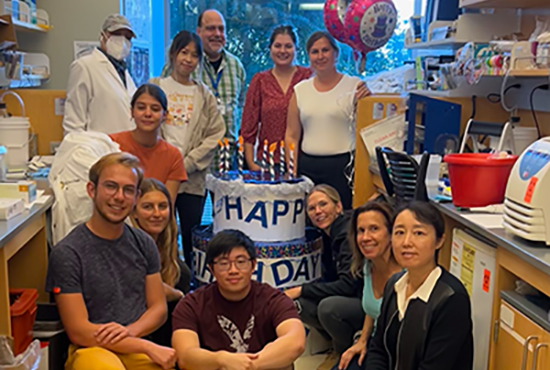
V Foundation Translational Award
Schlaepfer Lab granted prestigious V Foundation for Cancer Research Translational Award for "Overcoming Immune Resistance in Ovarian Cancer"
One of the biggest challenges to extending patient survival from recurrent ovarian cancer is to understand how these tumors can “hide” from detection by cells of the immune system. Immunotherapy involves treatments that use the body's own immune system to help fight cancer. Our work builds upon the idea that ovarian tumors upregulate immune “protective” molecules and that these provide a “shield” against immune cell attack.
We have found that the activity of a protein (FAK) within ovarian tumor cells drives protection signals to limit immune cell activation. The combination of novel drugs blocking FAK with immunotherapy resulted in the survival of mice with aggressive ovarian tumors. In mice, we have identified measurable markers that circulate in blood, the presence of which increased as tumors were being attacked by immune cells. Mice treated with a novel combination of tumor- and immune-targeting therapies will validate the timing and extent of marker changes in tissues and blood as the tumor shrinks. The benefit of measuring markers in blood is that this does not involve surgery and may provide clinicians with early insights of patient response.
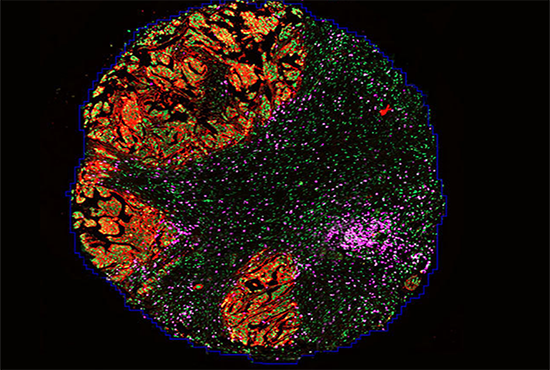
Media Highlights
- Meet David Schlaepfer, PhD & the Research Team Inspiring Us from the Groundbreaking Schlpaefer Translational Science Laboratory (Fimbria Vol. 13)
- How Ovarian Cancer Defies Immunotherapy (UC San Diego Today)
- Lethal Ovarian Cancer Checked by Dual Attack on Immune Checkpoint, in Mice
(Genetic Engineering & Biotechnology News) - New combinatorial strategies to treat ovarian cancer (Drug Target Review)
- Ovarian Cancer Fights Back Immunotherapy – Here’s How (Med India)
- How Ovarian Cancer Defies Immunotherapy (Science & Technology News)
- How ovarian cancer defies immunotherapy (SCIEN MAG | Science Magazine)
- ¿Cómo el cáncer de ovario desafía la inmunoterapia?
- DESCUBREN CÓMO EL CÁNCER DE OVARIO DESAFÍA LA INMUNOTERAPIA Y LO HACE UNO DE LOS TUMORES MÁS DIFÍCILES DE TRATAR
- Descubren cómo el cáncer de ovario desafía la inmunoterapia y lo hace uno de los tumores más difíciles de tratar
- 13 July 2022: Biomedical Picture of the Day, MRC London Institute of Medical Science / Breaching the Defense
Lab Location
Our research team is located at the Moores UC San Diego Cancer Center

